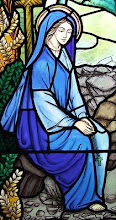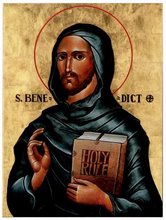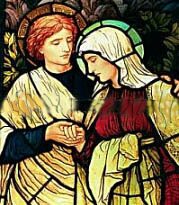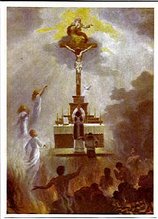
Interview on Purgatory with Francisco Romero-Carrasquillo, Professor of Philosophy and author of Ite ad Thomam.
Why does the majority of society today scoff at the Catholic dogma of Purgatory?
"Because Purgatory can't be proved by reason alone, what is the most clear and concise way that a Catholic can prove to another that it does indeed exist? Protestant influences have infected our western culture for five centuries now. One of the principal attacks of the “Reformers” against the Catholic Faith was their hatred of anything having to do with our collaboration with redemption. That includes: merits, indulgences, purgatory, the Mass and the sacraments, Our Lady, etc. This is partially why our western culture scoffs at the dogma of Purgatory.Another influence is simply ignorance. Also due to the Protestant notion of salvation, our society tends to think somehow that all it takes for one to go to heaven is faith alone, and maybe a sign that one has faith is that one is generally good, that one abstains from committing murder and other horrendous acts of that sort. So it is relatively easy, according to our culture, to go to heaven. So the assumption is that God sends you to Heaven automatically as long as you don’t do something terribly evil with a malicious intention. The notions of sanctifying grace, the theological virtues, mortal and venial sin, and even hell do not cross their minds, at least in any serious way. So, in that worldview, Judgment, Purgatory, Limbo (and even Hell) can be dispensed with.The most straightforward way to prove the existence of purgatory to a Catholic (and I mean a true, well-intentioned Catholic, who accepts in principle the authority of the Pope and Magisterium) is to show him the text of the definition of the dogma from the Council of Trent:
Whereas the Catholic Church, instructed by the Holy Ghost, has from the Sacred Scriptures and the ancient tradition of the Fathers taught in Councils and very recently in this Ecumenical synod (Sess. VI, cap. XXX; Sess. XXII cap.ii, iii) that there is a purgatory, and that the souls therein are helped by the suffrages of the faithful, but principally by the acceptable Sacrifice of the Altar; the Holy Synod enjoins on the Bishops that they diligently endeavor to have the sound doctrine of the Fathers in Councils regarding purgatory everywhere taught and preached, held and believed by the faithful (Denzinger, Enchiridon, 983).
The teaching of the Magisterium is straightforward. However, it is not the only proof for the Catholic. The Magisterium is what theologians call an “Organ of Sacred Tradition.” In proof of the existence of purgatory you could also quote what theologians call the “Witnesses of Tradition,” which are equally infallible and which are represented by the unanimous consensus of the Fathers, of the theologians, of the faithful, throughout the centuries. These can be easily known through the writings of the Fathers and Doctors of the Church and of the Saints, as well as through catechisms, liturgical texts, sacred places, etc. All of Catholic culture cries out that there is indeed a Purgatory.But, practically speaking, this will hardly do for those who call themselves “Catholic” but do not believe in the authority of the Magisterium. So, if they don’t believe in Sacred Tradition (that is, neither in the Organs nor in the Witnesses of Tradition), you should at least be able to quote the other source of Divine Revelation, namely, Sacred Scripture.The most obvious text of Scripture for this purpose is 1 Maccabees 12:42-46:
And so betaking themselves to prayers, they besought him, that the sin which had been committed might be forgotten. But the most valiant Judas exhorted the people to keep themselves from sin, forasmuch as they saw before their eyes what had happened, because of the sins of those that were slain. And making a gathering, he sent twelve thousand drachms of silver to Jerusalem for sacrifice to be offered for the sins of the dead, thinking well and religiously concerning the resurrection, (For if he had not hoped that they that were slain should rise again, it would have seemed superfluous and vain to pray for the dead,) And because he considered that they who had fallen asleep with godliness, had great grace laid up for them. It is therefore a holy and wholesome thought to pray for the dead, that they may be loosed from sins.
Now, if you are speaking to a Protestant, he most likely does not believe that the books of the Maccabees are authentic books of the Sacred Scripture (these, and other books of the Old Testament are missing from their Protestant bibles). So you just quote Our Lord Himself (Mt. 12:31):
Therefore I say to you: Every sin and blasphemy shall be forgiven men, but the blasphemy of the Spirit shall not be forgiven. And whosoever shall speak a word against the Son of man, it shall be forgiven him: but he that shall speak against the Holy Ghost, it shall not be forgiven him, neither in this world, nor in the world to come."
Whereas the Catholic Church, instructed by the Holy Ghost, has from the Sacred Scriptures and the ancient tradition of the Fathers taught in Councils and very recently in this Ecumenical synod (Sess. VI, cap. XXX; Sess. XXII cap.ii, iii) that there is a purgatory, and that the souls therein are helped by the suffrages of the faithful, but principally by the acceptable Sacrifice of the Altar; the Holy Synod enjoins on the Bishops that they diligently endeavor to have the sound doctrine of the Fathers in Councils regarding purgatory everywhere taught and preached, held and believed by the faithful (Denzinger, Enchiridon, 983).
The teaching of the Magisterium is straightforward. However, it is not the only proof for the Catholic. The Magisterium is what theologians call an “Organ of Sacred Tradition.” In proof of the existence of purgatory you could also quote what theologians call the “Witnesses of Tradition,” which are equally infallible and which are represented by the unanimous consensus of the Fathers, of the theologians, of the faithful, throughout the centuries. These can be easily known through the writings of the Fathers and Doctors of the Church and of the Saints, as well as through catechisms, liturgical texts, sacred places, etc. All of Catholic culture cries out that there is indeed a Purgatory.But, practically speaking, this will hardly do for those who call themselves “Catholic” but do not believe in the authority of the Magisterium. So, if they don’t believe in Sacred Tradition (that is, neither in the Organs nor in the Witnesses of Tradition), you should at least be able to quote the other source of Divine Revelation, namely, Sacred Scripture.The most obvious text of Scripture for this purpose is 1 Maccabees 12:42-46:
And so betaking themselves to prayers, they besought him, that the sin which had been committed might be forgotten. But the most valiant Judas exhorted the people to keep themselves from sin, forasmuch as they saw before their eyes what had happened, because of the sins of those that were slain. And making a gathering, he sent twelve thousand drachms of silver to Jerusalem for sacrifice to be offered for the sins of the dead, thinking well and religiously concerning the resurrection, (For if he had not hoped that they that were slain should rise again, it would have seemed superfluous and vain to pray for the dead,) And because he considered that they who had fallen asleep with godliness, had great grace laid up for them. It is therefore a holy and wholesome thought to pray for the dead, that they may be loosed from sins.
Now, if you are speaking to a Protestant, he most likely does not believe that the books of the Maccabees are authentic books of the Sacred Scripture (these, and other books of the Old Testament are missing from their Protestant bibles). So you just quote Our Lord Himself (Mt. 12:31):
Therefore I say to you: Every sin and blasphemy shall be forgiven men, but the blasphemy of the Spirit shall not be forgiven. And whosoever shall speak a word against the Son of man, it shall be forgiven him: but he that shall speak against the Holy Ghost, it shall not be forgiven him, neither in this world, nor in the world to come."
There ends this fine interview. I ask all who have read this post or any of them in this series, please pray for the holy souls in purgatory. They suffer without relief! It is our sacred duty to pray for them and assist them with our alms! Amen+






















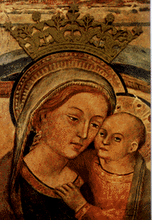







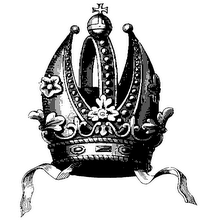
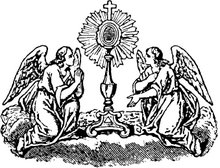
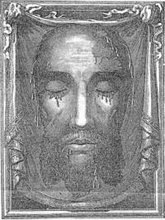


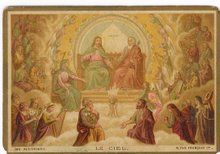




01.jpg)



